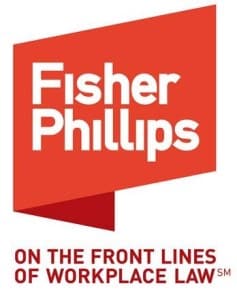Can HR Reopen an Employee Investigation – Ask #HR Bartender
This is a very interesting reader note. While it might sound unusual, I could see it happening.
I had a complaint filed against me for inappropriate conduct. I received an email stating that HR wanted to meet with me about the situation. I was never told the details of the complaint. Then I got sick, and went on medical leave. HR continued with the investigation and found it inconclusive. Now I’m ready to return to work and HR says they will be reopening the investigation. Can they do that?
I told you it was interesting. First of all, this will come as no surprise but it’s not possible to simply say, “Yes, HR can do that.” Or “No, HR can’t.” There are a few reasons that it’s not as clear as it reads.
- We don’t know what kind of inappropriate conduct is involved. Sad to say but there’s a spectrum of inappropriate conduct – from conduct that that violates civil rights laws to conduct that violates organizational rules.
- The reader note says they didn’t know the details of the complaint, but it doesn’t say that they never spoke to HR. So we don’t know what happened there. We also don’t know the type and length of the employee’s medical leave.
- Lastly, speaking of not knowing what happened, we don’t know what human resources found (or didn’t find) in their investigation.
But there are some things in this situation we can talk about. So I asked my friend Charles Caulkins, partner with the firm of Fisher Phillips, if he would share his knowledge with us. Charles represents employers nationally in labor and employment law matters and is a member of the firm’s management committee.
Please remember that, while Charles is an attorney, his comments should not be construed as legal advice or as pertaining to any specific factual situations. If you have detailed questions, they should be addressed directly with your friendly neighborhood labor attorney.
Charles, as we discussed, there are lots of things we don’t know about this situation. For the benefit of our readers, what typically happens when a complaint of inappropriate conduct is filed – meaning how do most investigations start?
[Caulkins] A complaint or information can come forward in several ways. It might be from a supervisor who has an obligation to bring the information forward to human resources or an employee who says, ‘Sally doesn’t want me to tell you this but …’ Some companies will receive information via an anonymous hotline or letter.
I know some organizations take the stand that they will not address anonymous information. Is that a safe approach?
[Caulkins] Ignoring anonymous information can be risky. I suggest that organizations do something. If the claim is outlandish, then don’t go on a wild chase to find the truth. But If it appears even the slightest bit plausible, try to investigate. See where making a few inquiries leads you. And be sure to document it.
In many cases, the employee who brings the complaint forward wants to be assured of confidentiality. Is an employer obligated to tell an accused employee the details of a complaint – either before meeting with them or during the meeting?
It’s equally important to remind employees that the company has no tolerance for retaliation. Because it is possible that during the course of an investigation, even if you don’t release a person’s name, the details will allow employees to figure out who brought the complaint forward.
When it comes to investigations, does an employee going on medical leave change anything?
[Caulkins] Yes and no. Human resources has a responsibility to complete the investigation the best they can. It’s possible that HR can suspend the investigation and when the employee returns from medical leave, they can reopen it.
The company can also continue the investigation. They can ask the employee for a meeting either in person or over the phone to ask questions. The decision to do this will depend on the medical situation and the employee’s mobility.
The same holds true for potential witnesses in the investigation. And in case anyone is wondering, yes, the company needs to pay them for their time.
If HR conducts an investigation and finds it “inconclusive”, does that mean the employee is off the hook? Why or why not?
[Caulkins] If new information or evidence comes to light, HR has an obligation to reopen the investigation. It’s the legally prudent thing to do.
I want to thank Charles for sharing his knowledge with us. Fisher Phillips has several blogs worth checking out including the Employment Privacy blog, the Gig Employer blog, and the Wage and Hour Laws blog. One of the big takeaways for me in this conversation was the piece on anonymous information. I’ve written before about my frustrations with anonymous letters and such. It doesn’t absolve us of our responsibilities. It just makes our jobs harder.
But think about how difficult your job would be if you ignored it.
Image taken by Sharlyn Lauby at the 34th Street Graffiti Wall in Gainesville, FL
1